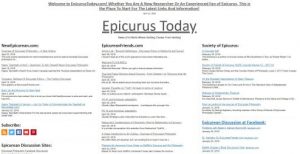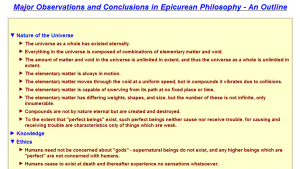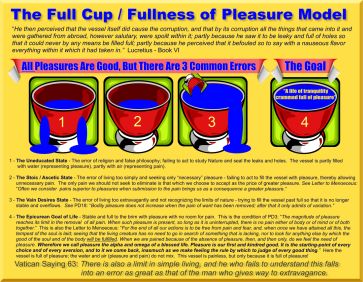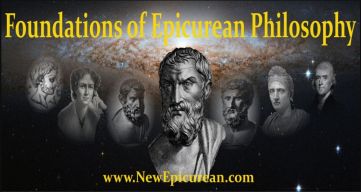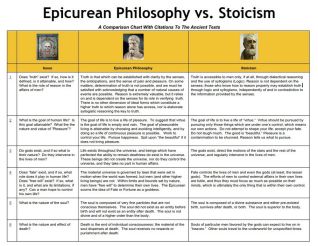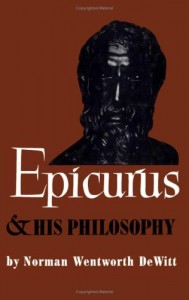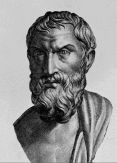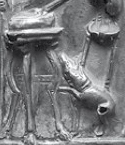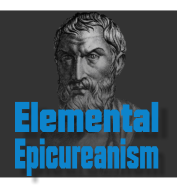- Core Ideas
- Core Ideas – Introductory Material
- Epicurean Canonics – The Test of Truth
- Epicurean Physics – On The Nature of the Universe
- Epicurean Ethics – How Men Should Live
- The Goal of Life – The Full Cup / Fullness of Pleasure Model
- Virtue As Instrumental
- Against Supernaturalist Religion
- Against Stoicism
- Against Skepticism
- Against Platonic and Aristotelian Idealism
- Special Topics
- Texts
- Texts – Introduction
- Norman DeWitt’s “Epicurus And His Philosophy”
- Diogenes Laertius: The Life of Epicurus
- 12 Elementals of Nature
- The Doctrines and Sayings of Epicurus
- Vatican Library List
- The Wise Man Sayings
- Letter to Herodotus
- Letter to Pythocles
- Letter to Menoeceus
- Lucretius
- Diogenes of Oinoanda: The Inscription
- Later Writers
- Later Writers – Introduction
- Cicero: Torquatus’ Defense of Epicurus from “On Ends”
- Seneca: References to Epicurus
- Lucian: Hermotimus
- Lucian: Alexander the Oracle-Monger
- Cosma Raimondi
- Gassendi’s Epicurus
- Gassendi’s Epicurus – Part 1 – Life of Epicurus
- Gassendi’s Epicurus – Part 2A – Of Philosophy in General
- Gassendi’s Epicurus – Part 2B – The First Part of Philosophy, Canonick, of the Criteries
- Gassendi’s Epicurus – Part 2C – The Second Part of Philosophy, Physick, or, of Nature
- Gassendi’s Epicurus – Part 2D – The Third Part of Philosophy, Ethick, or Morals
- Thomas Jefferson: Pro Epicurus / Contra Plato
- Library
- Blog
- Other Resources
- Ebooks
- Elemental Epicureanism
- Thus Purred Catius’ Cat
- Catius’ Cat And The Forty Mice
- Frances Wright’s “A Few Days In Athens”
- Lion of Epicurus – Lucian and His Epicurean Passages
- The Tripod of Truth
- The Doctrines of Epicurus – Annotated
- An Introduction To The Nature of Things
- Ante Oculos – Epicurus and The Evidence-Based Life
- A Life Worthy of the Gods – The Life And Work of Epicurus
- The Same Span of Time – The Major Works of Thomas Cooper, M.D.
- On Three Legs We Stand – Epicurus and the Dialogues of Jackson Barwis
- Youtube/Video
- News From The World of Epicurus
- Links
- Purpose
- Audio Library
- Honor Roll of Epicureans
- Epicurean Art in the Ancient World
- FAQ
- About The Admin
- Ebooks
- EpicureanFriends Forum
Featured Video: You Have Been Deceived!
-
Happy Twentieth of August! Oh my gosh the 20th is almost over here in my time zone and I haven’t issued a “Happy 20th” myself at Facebook or Epicureanfriends.com, or seen anyone else do so! 😉 Life come at you hard sometimes with so many distractions, but I am in my eighth+ year of hard-core Epicurean studying, and I can say without …
If you are a new visitor, please be sure to check out our welcome videos above, especially our latest introductory summary: Foundations of Epicurean Philosophy. Be sure also to review our presentation of Epicurus’ own summary of his philosophy, his “Letter to Herodotus.” Also, we have To The Hearts In Darkness: a Brief Introduction to the Philosophy of Epicurus. For a summary at an elemental level, see our two short poems “Thus Purred Catius Cat” and “Catius Cat And the Forty Mice.” These videos are organized for easy reference on our Youtube Video Page. We also have a set of answers to Frequently Asked Questions.
The purpose of this website is to promote the study of the philosophy of Epicurus.
Epicurus taught that it is essential to our happiness to pursue the study of Nature. An understanding of basic principles of Nature leads us to conclude that the universe is eternal, that we have free will, that we are not predestined by “Fate,” that we have no need to fear punishment or reward from capricious gods either now or after death, that we can find all the truth that is necessary for us to find, that happiness is possible, and that the requirements of happy living are few and simple. And these truths are not matters of speculation or reserved for some future existence – these are the ground rules of the only life available to us – the one we live now.
Armed with confidence in these conclusions, we are freed from the unnecessary fears and anxieties peddled by false priests and false philosophers. Beguiled no longer by “virtue” or “abstract reason” or “the will of the gods,” we are free to follow the guide Nature provided to us, Divine Pleasure. And our confidence that these conclusions are correct is not a matter of faith – in Epicurus or anything or anyone else. Our confidence is grounded in the proper use of the faculties Nature herself gave to us, by use of the method of true reason taught by Epicurus.
These are the matters that this web site will explore. This exploration is directed to normal, everyday people who wish to live happily – it is not directed to academics or historians. Academics and historians are welcome as well, but the philosophy of Epicurus was developed for ordinary people, and for far too long it has been hidden away from those who need it most. Establishment figures can be expected to continue to reject Epicurus just as they have for thousands of years. Epicurus’ philosophy gives no quarter to imposition or manipulation, and gives no route to fame or riches or power over others. The path of Epicureanism will always be the one to which Nature calls, but only those who are willing to listen to her, rather than to the crowd, will follow.
For a summary of the tenets of Epicurean philosophy prepared by Epicurus himself, consult the three letters he wrote for that purpose: (1) To Herodotus on General Principles of Nature, (2) To Pythocles on Astronomy, and (3) To Menoeceus on Ethics.
The Letter to Herodotus
The Letter to Pythocles
The Letter to Menoeceus
Note: The above “Elemental Edition” audio versions are not literal translations, but have been compiled and simplified from a variety of sources. For the full original texts of these letters with critical commentary, consult the various resources included in the NewEpicurean library.
Thomas Jefferson, the third president of the United States, wrote in his private correspondence “I too am an Epicurean.” ![]() Without an understanding of Epicurus, you will never truly follow the roots of Jefferson’s thinking, or know why he wrote statements such as these:
Without an understanding of Epicurus, you will never truly follow the roots of Jefferson’s thinking, or know why he wrote statements such as these:
- As you say of yourself, I too am an Epicurean. I consider the genuine (not the imputed) doctrines of Epicurus as containing everything rational in moral philosophy which Greece and Rome have left us. Epictetus indeed, has given us what was good of the stoics; all beyond, of their dogmas, being hypocrisy and grimace. Their great crime was in their calumnies of Epicurus and misrepresentations of his doctrines; in which we lament to see the candid character of Cicero engaging as an accomplice. Diffuse, vapid, rhetorical, but enchanting. His prototype Plato, eloquent as himself, dealing out mysticisms incomprehensible to the human mind, has been deified by certain sects usurping the name of Christians; because, in his foggy conceptions, they found a basis of impenetrable darkness whereon to rear fabrications as delirious, of their own invention. – Thomas Jefferson to William Short, 1819
- “I am satisfied, and sufficiently occupied with the things which are, without tormenting or troubling myself about those which may indeed be, but of which I have no evidence.” – Thomas Jefferson to John Adams, 1820
- …[T]o give rest to my mind, I was obliged to recur ultimately to my habitual anodyne: “I feel: therefore I exist.” I feel bodies which are not myself: there are other existencies then. I call them matter. I feel them changing place. This gives me motion. Where there is an absence of matter, I call it void, or nothing, or immaterial space. On the basis of sensation, of matter and motion, we may erect the fabric of all the certainties we can have or need. … To talk of immaterial existences is to talk of nothings. To say that the human soul, angels, god, are immaterial, is to say they are nothings, or that there is no god, no angels, no soul. I cannot reason otherwise. – Thomas Jefferson, Letter to John Adams, August 15, 1820
- The doctrines which flowed from the lips of Jesus himself are within the comprehension of a child; but thousands of volumes have not yet explained the Platonisms engrafted on them; and for this obvious reason, that nonsense can never be explained. – Thomas Jefferson, Letter to John Adams, July 5, 1814
The NewEpicurean Library
New for today on the website is The NewEpicurean Library. The ancient Epicurean texts remaining to us today are available freely on the internet in a variety of translations, and one of the best ways to become more familiar with Epicureanism is to compare the …
Read MoreA day late, but not forgotten … Peace and Safety for Your 20th of August!
Peace and Safety to the Epicureans among us, no matter where you might be! As we remember Epicurus and the original pathfinders of Epicureanism, here’s a thought for the day, courtesy of Lucretius, via the Humphries translation of De Rerum Natura: O glory of the …
Read MoreTo the Hearts In Darkness: A Brief Introduction to Epicurus
When Thomas Jefferson wrote “I too am an Epicurean,” he was not referring to his taste in food or wine. Most people today are familiar with Epicurus only from the distortions spoken about him by his enemies, but Jefferson had thoroughly studied the man he …
Read MoreFreedom Isn’t Free – Agora, the movie (2010)
This weekend I had the opportunity to see Agora, the recent movie starring Rachel Weisz. Agora is now showing only in the U.S., in very limited distribution prior to the release of the DVD in October. I will try to develop this post with greater …
Read MoreNot by Chance, Not by Fortune, Not by Fate, Not by Accident, and Not by the Gods was the World Made, But by Natural Law
Epicurus has been slandered through the ages with the contention that he taught that the universe arose “by accident.” Religionists warned their flocks away from Epicurus by arguing that the world we see around us could never have arisen from the accidental collisions of atoms, …
Read MoreNo Fate But What We Make
A discussion of the details of “Terminator 2” is far beyond the scope of this blog, but composites made from two scenes of that movie form a good frame for discussing a subject of critical importance. One of the key observations at the heart of …
Read More






